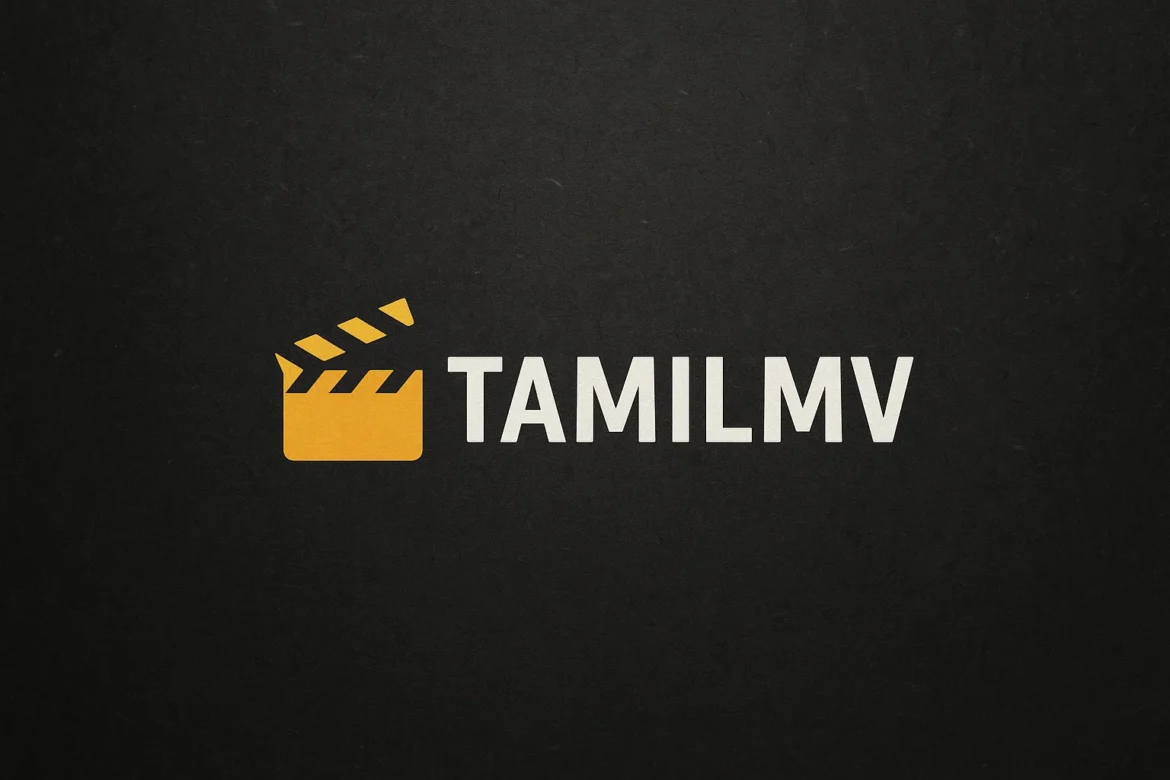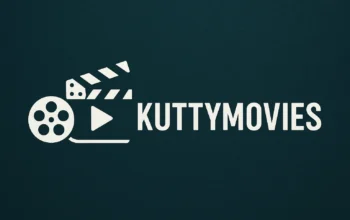
In the ever-evolving digital world, access to movies and web series has become easier than ever before. Streaming platforms have revolutionized how audiences consume content, providing high-quality entertainment at affordable prices. However, with this digital convenience comes a darker side of the internet — movie piracy. Among the many notorious websites that facilitate illegal movie downloads, TamilMV has gained particular attention. This article explores what TamilMV is, how it operates, the risks associated with using such platforms, and why legal streaming options are the only sustainable path forward for the entertainment industry.
What Is TamilMV?
TamilMV is an infamous online platform known for leaking and distributing copyrighted movies, TV shows, and web series, primarily from the South Indian film industry. The site often provides illegal downloads or streaming links for Tamil, Telugu, Malayalam, Kannada, and Hindi movies — often within hours or days of their theatrical release. Over time, it has expanded to include Hollywood films and international content dubbed into Indian languages.
The site gained massive popularity among users seeking free entertainment, especially in regions where paid streaming subscriptions were less common. Despite numerous takedowns and government blocks, TamilMV frequently resurfaces under new domain names and mirror sites, continuing to evade authorities and disrupt the entertainment economy.
How TamilMV Operates: The Hidden Network Behind Piracy
TamilMV operates through a network of mirror websites, proxy domains, and cloud-based servers that make it difficult for law enforcement agencies to permanently shut it down. When one domain is blocked, the operators quickly launch another under a different name or extension.
The platform typically earns revenue through malicious advertisements, pop-ups, and third-party redirects that can expose users to malware and online scams. Many users who visit TamilMV for free downloads may unknowingly grant access to harmful software or lose personal data through phishing schemes.
Additionally, TamilMV relies on anonymous contributors who upload leaked versions of movies. These leaks often originate from theater recordings, pre-release screeners, or hacked digital prints, all of which are clear violations of copyright law.
Why People Use TamilMV Despite Legal Risks
Understanding why users turn to TamilMV requires examining the audience’s mindset and broader market challenges. Some common reasons include:
-
Free Access to Content: Users are drawn to TamilMV because it offers the latest movies without any payment or subscription.
-
Regional Language Variety: TamilMV provides films in multiple Indian languages, including Tamil, Telugu, and Malayalam, catering to regional audiences.
-
Limited Streaming Options: In some rural or low-income areas, legal streaming platforms may not offer affordable plans or regional content.
-
Curiosity and Convenience: Some users download from piracy sites simply because they are unaware of legal consequences or safer alternatives.
While these reasons may seem understandable, they cannot justify the legal and ethical issues surrounding movie piracy.
The Legal Implications of Using TamilMV
Engaging with or supporting a piracy website like TamilMV is a violation of copyright law in many countries, including India. The Copyright Act of 1957 clearly defines movie piracy as a criminal offense.
Individuals who upload, share, or even download copyrighted material without authorization can face severe penalties, including:
-
Imprisonment of up to three years
-
Fines ranging from ₹50,000 to ₹2,00,000
-
Permanent record of violation under cybercrime laws
Internet Service Providers (ISPs) are required by law to block access to piracy websites once identified by authorities. Visiting or promoting such sites not only breaks the law but also undermines the creative industry that depends on legitimate revenue.
How TamilMV Affects the Film Industry
The rise of TamilMV and similar piracy websites has had a devastating impact on the Indian entertainment sector. Each time a movie is leaked before or shortly after release, it can lead to massive financial losses for producers, distributors, and even local theater owners.
Here are some of the major effects of piracy:
-
Loss of Revenue: Filmmakers lose a significant portion of box office earnings when audiences choose free illegal downloads over paid tickets.
-
Reduced Investment: Investors become hesitant to fund new projects, particularly regional films, due to piracy threats.
-
Job Losses: Thousands of workers in the film ecosystem — from set designers to makeup artists — suffer when movie revenues decline.
-
Decreased Motivation: Artists, writers, and directors may lose creative drive if their work is constantly stolen and shared illegally.
Piracy not only harms big studios but also affects small creators and independent filmmakers trying to build sustainable careers.
The Broader Impact on Digital Platforms
Streaming giants like Netflix, Amazon Prime Video, Disney+ Hotstar, and SonyLIV invest heavily in securing distribution rights and producing original content. When piracy websites like TamilMV leak this content, it discourages digital innovation and reduces the incentive for global players to invest in regional entertainment.
Ad-supported piracy sites divert traffic away from legitimate platforms, reducing the overall revenue that could otherwise support legal creative ecosystems. This ripple effect damages the long-term sustainability of the entire entertainment industry.
Cybersecurity and Privacy Risks of TamilMV
Beyond the legal issues, TamilMV poses serious cybersecurity threats to users. Many of its download links are embedded with malware, ransomware, or spyware, which can compromise a user’s personal device and data.
Some common risks include:
-
Data Theft: Hackers may steal sensitive information like passwords, banking credentials, or private photos.
-
Device Damage: Malicious files can corrupt operating systems or lead to device crashes.
-
Financial Fraud: Clicking on pop-up ads or fake links can redirect users to scam websites or fraudulent payment gateways.
-
Privacy Invasion: Some piracy platforms track user activity for targeted ads or identity theft purposes.
In essence, using TamilMV is not just illegal — it is dangerous for one’s digital safety.
Government and Law Enforcement Action Against TamilMV
The Indian government has made multiple efforts to curb piracy through legal measures and digital surveillance. The Ministry of Information and Broadcasting, along with cybercrime units, continuously monitors piracy activities and blocks illegal domains.
Over the years, TamilMV and similar sites like TamilRockers, Movierulz, and Isaimini have been banned repeatedly. Yet, they continue to reappear with new URLs, often hosted on international servers that make enforcement more difficult.
Law enforcement agencies have also arrested several individuals linked to these piracy networks. However, since many operators remain anonymous and operate across borders, a permanent solution requires international collaboration.
Why Legal Streaming Is the Right Choice
The best way to fight piracy is to support legal streaming platforms. These platforms ensure that artists, producers, and technicians receive fair compensation for their work while giving audiences safe and high-quality entertainment.
Legal streaming services offer numerous benefits:
-
Superior Audio-Visual Quality without malware or pop-ups.
-
Affordable Subscription Plans, especially with regional pricing.
-
Diverse Content Libraries with movies, shows, and documentaries from multiple languages.
-
Offline Viewing options for convenience.
-
Ethical Entertainment that supports creativity and the economy.
Supporting legal platforms contributes to the growth of the entertainment industry, encouraging better storytelling and innovation.
The Cultural Cost of Piracy: Undermining Creativity and Heritage
Piracy platforms like TamilMV do more than harm the financial structure of the film industry — they also damage the cultural and creative identity of a nation. Indian cinema, especially the Tamil and Telugu film industries, is are global ambassador of regional art, storytelling, and music. Every pirated download strips away part of that legacy by reducing the value of authentic creative effort.
When films are leaked or illegally shared, the excitement of release day fades, and the collaborative hard work of thousands of artists becomes overshadowed by the spread of unauthorized copies. For example, independent directors or debut actors rely heavily on box office performance to prove their talent and secure future projects. Piracy robs them of that opportunity, turning what could have been a breakthrough into a financial setback.
Culturally, piracy also distorts audience engagement. Watching a movie through a poor-quality pirated copy removes the immersive experience intended by filmmakers. It’s not just about the visuals — it’s about sound, lighting, atmosphere, and emotional connection. Pirated versions often lack subtitles, color grading, and sound clarity, leaving viewers with an incomplete understanding of the art.
Educating the Public: Changing the Mindset Toward Piracy
One of the biggest challenges in combating piracy is public perception. Many people don’t see watching pirated content as a crime, but rather as a harmless shortcut to free entertainment. This misconception can only be corrected through education and awareness.
Schools, media outlets, and government campaigns can help spread awareness about how piracy impacts the economy and individual safety. Moreover, content creators should continue advocating for digital literacy, encouraging fans to consume their work through authorized platforms.
The Future of Anti-Piracy Efforts
As technology advances, so do anti-piracy measures. From blockchain-based watermarking to AI-driven content tracking, entertainment companies are developing smarter ways to trace and remove illegal uploads.
Collaboration between production houses, internet regulators, and cybersecurity firms is essential for long-term success. The entertainment industry is also working toward making legal access more affordable and regionally inclusive, reducing the temptation to turn to piracy.
Conclusion
TamilMV may promise free entertainment, but it comes at a heavy cost — to the film industry, to artists, and to the users themselves. It represents the darker side of the digital age, where convenience often overrides legality and ethics.
Choosing to watch or download from TamilMV not only violates copyright laws but also contributes to a system that exploits creative labor. In contrast, subscribing to legitimate streaming services supports the artists who dedicate their lives to bringing stories to the screen.
Ultimately, every viewer has the power to shape the future of entertainment. By making ethical choices, we can ensure that cinema and digital storytelling continue to thrive — legally, safely, and sustainably.
You May Also Read: Jennifer Aniston
